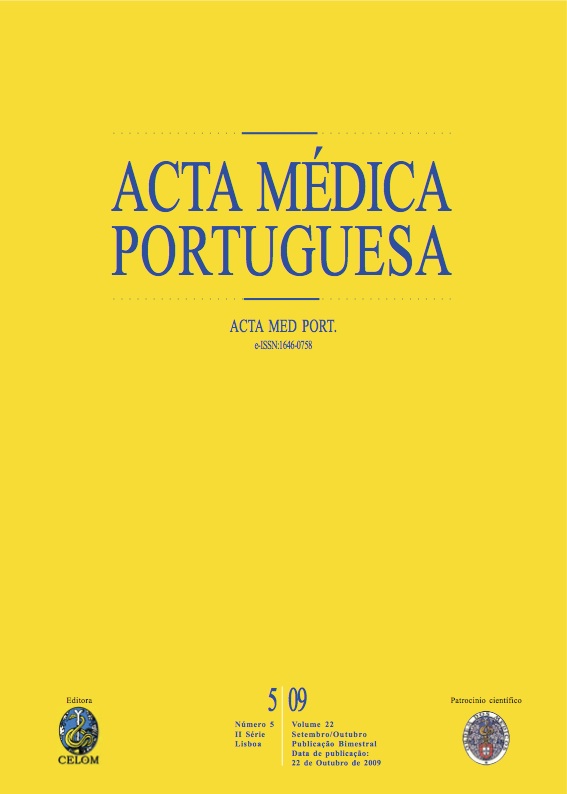Padrões de sono em estudantes universitários Portugueses.
DOI:
https://doi.org/10.20344/amp.1719Resumo
Sleep habits of Portuguese undergraduates are almost unknown, and very few international published articles have addressed whether demographic and academic variables such as residence, university year and academic field, might be associated to the sleep-wake patterns of university students. The aims of the present work were thus to characterize perceived sleep habits, behaviours and problems of Portuguese undergraduates, and to examine them by gender, residence status, university year and academic field.The selected participants were 1654 undergraduates (55% female) of a public Portuguese university, aged 17-25 years (M = 19.98, SD = 1.65), at the 1st, 2nd a 3rd university years, studying Engineering, Management, Sciences, Languages and Education, in its majority living outside their parents/family home ( students). Participants answered to a self-response questionnaire about sleep-wake patterns, developed for the main research.Compared to men, women showed more regular and earlier sleep-wake schedules, fewer sleeplessness nights, and less napping, but more troubles initiating/maintaining sleep and use of pills to fall asleep. students had the latest sleep-wake schedules on week nights, and felt more disturbed by noise; men reported more sleeplessness nights to complete academic tasks and greater changes of sleep habits since high school. Across university years (1st-3rd), there was a rising of perceived change of sleep habits, a delay of bedtime on school nights, and a decrease, in men, of week-weekend irregularity of rise time and of sleeplessness nights. Engineering students had the fewest difficulties initiating/maintaining sleep and the lowest use of sleeping promoting pills but, together with Sciences and Management, later sleep-wake schedules, than Languages and Education students.Differences on sleep-wake patterns were found between men and women, in accordance to the sleep literature. On addition to gender, the present study highlights that university year and, most importantly, residence circumstances, are also important variables to be considered for a better understanding of sleep habits and behaviours in undergraduates. Thus, we hope our findings constitute a contribution for the improvement of health prevention and intervention strategies directed to university students.Downloads
Downloads
Como Citar
Edição
Secção
Licença
Todos os artigos publicados na AMP são de acesso aberto e cumprem os requisitos das agências de financiamento ou instituições académicas. Relativamente à utilização por terceiros a AMP rege-se pelos termos da licença Creative Commons ‘Atribuição – Uso Não-Comercial – (CC-BY-NC)’.
É da responsabilidade do autor obter permissão para reproduzir figuras, tabelas, etc., de outras publicações. Após a aceitação de um artigo, os autores serão convidados a preencher uma “Declaração de Responsabilidade Autoral e Partilha de Direitos de Autor “(http://www.actamedicaportuguesa.com/info/AMP-NormasPublicacao.pdf) e a “Declaração de Potenciais Conflitos de Interesse” (http://www.icmje.org/conflicts-of-interest) do ICMJE. Será enviado um e-mail ao autor correspondente, confirmando a receção do manuscrito.
Após a publicação, os autores ficam autorizados a disponibilizar os seus artigos em repositórios das suas instituições de origem, desde que mencionem sempre onde foram publicados e de acordo com a licença Creative Commons









